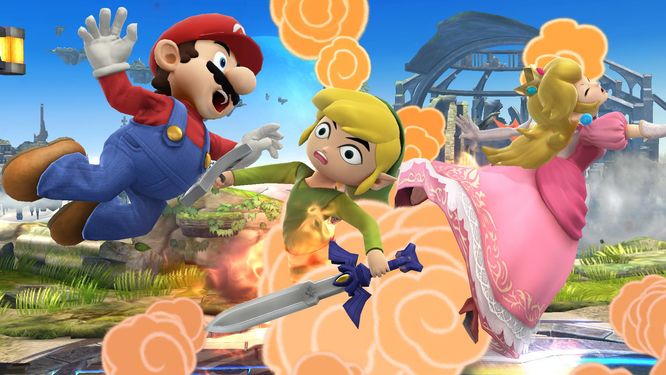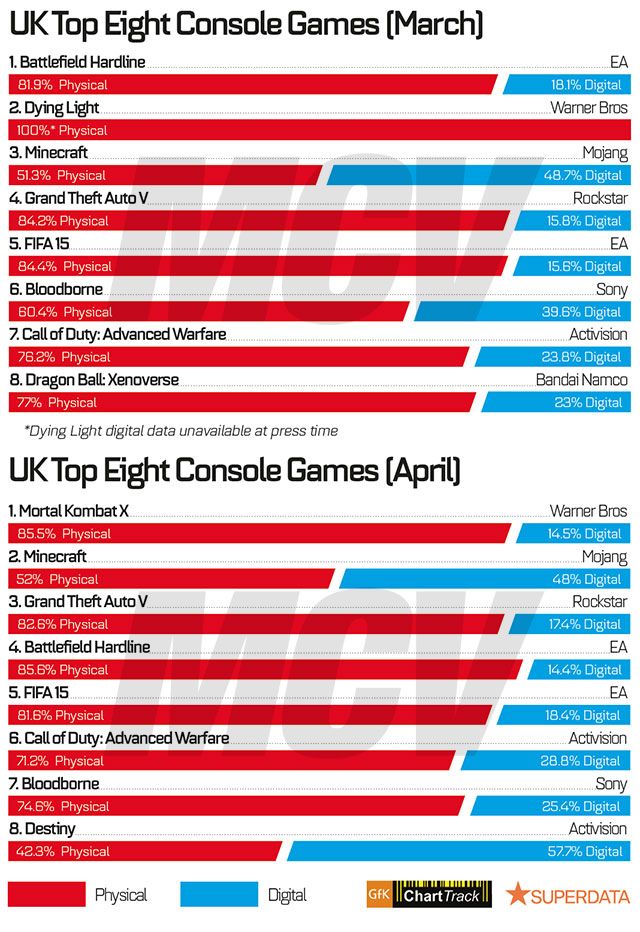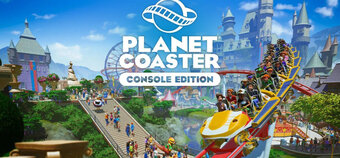How do you buy your games? It's a question that's been hot on the lips of every games industry analyst out there, with many arguing that the 'convenience' of downloading titles over buying traditional discs and cartridges should mean that anyone who knows what their doing would choose to download, rather than buy a physical disc. After all, if it's on your hard drive, you can play it any time, without having to get up to change games over - and with game playing folks being so notoriously lazy, it seems like a pretty much done deal.

Smash Bros. will take HOW long to download?!
Unfortunately, as is often the way, it turns out the received wisdom is, well, totally wrong. While a quick browse of a games forum would leave you all but certain that the vast majority of people download games, according to a survey and analysis by industry mag MCV, it turns out some 80% (on average) buy their games the old fashioned way - on a disc, although it does vary from game to game. For some games, a digital version launches before the physical, which can lead to higher digital downloads - but could also warp the stats somewhat, given that the digital has had a few days head start over the physical in sales. Still, if you take into account that these results are based entirely off chart data - i.e. first hand sales - if you were to include pre-owned games, which are exclusively boxed copies, the percentage would likely be even higher. Here's the figures in full:

Even among the more 'hardcore' games, the preference for physical is clear.
This is the first time we've seen any information like this, and, if you're of a bit of a nerdy disposition, it's also genuinely interesting. Perhaps most surprising is quite how high the boxed sales for games originally released as download-only are - in the case of Minecraft, it's almost a fifty/fifty split between boxed and digital, despite the physical edition launching many months later. You'd have thought everyone who wanted it would have already bought it by the time the boxed copy finally found its way into stores, but that doesn't necessarily seem to be the case - perhaps given the game's popularity with kids, it could be that parents tend to prefer the certainty of a boxed game rather than having to put their credit card details into a console, where there's a danger of kids going on an unauthorised spending spree.
Of course, the news that physical games are still popular should come as little surprise to those who've upgraded to the 'next generation' Xbox One and Playstation 4, as increasing file sizes and a surprisingly limited storage space make disc based games much more practical than downloads. With many of the biggest games clocking in at over 40GB, downloads a game over a fast broadband connection can take an age - Virgin Media's fastest 100Mb/s would take at least an hour to download the whole thing, on a good day. A more average speed of 20Mb/s would take more like five hours - and that's assuming a best possible connection. Handheld users aren't exempt either, with Sony's PS Vita being the most problematic of the bunch, given the smallish size of memory cards and a larger quantity of 'download only' niche Japanese games that weigh in at 3GB+ a pop - which means you can fit a grand total of two games on a now-standard-issue 8GB memory card. Even if you shell out for the biggest card going - a 32GB one - that's still only ten titles. Which means a lot of game shuffling, backing up and deleting.
Despite all the talk of a 'digital only future', it seems the folks who buy the games still prefer traditional discs in boxes. To be honest, we're not really all that surprised at the results - given that we too much prefer physical copies of our games - the study does provide an interesting insight into the minds of players everywhere. Now if only we could get a bigger PS Vita memory card...












